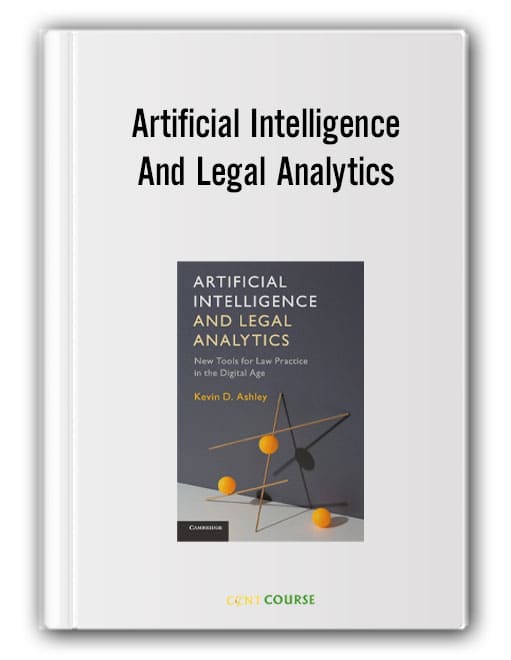Artificial Intelligence and Legal Analytics
This book explains computational processes to non-programmers, and explains how they will alter the practice of law.
Artificial Intelligence and Legal Analytics Description
The open-source information management frameworks on which text analytic software like IBM’s Watson and Debater is built have sparked a revolution in the fields of artificial intelligence (AI) and law. New legal applications are starting to emerge today, and this book, which explains computational processes to non-programmers, explains how they will alter the practice of law.
More specifically, they will connect computational models of legal reasoning with legal text, produce arguments in favor of and against particular outcomes, predict outcomes, and explain these predictions with justifications that legal professionals will be able to assess for themselves.
Here’s what you will learn in this book:
PART I – COMPUTATIONAL MODELS OF LEGAL REASONING
- 1 – Introducing AI & Law and Its Role in Future Legal Practice
- 2 – Modeling Statutory Reasoning
- 3 – Modeling Case-based Legal Reasoning
- 4 – Models for Predicting Legal Outcomes
- 5 – Computational Models of Legal Argument
PART II – LEGAL TEXT ANALYTICS
- 6 – Representing Legal Concepts in Ontologies and Type Systems
- 7 – Making Legal Information Retrieval Smarter
- 8 – Machine Learning with Legal Texts
- 9 – Extracting Information from Statutory and Regulatory Texts
- 10 – Extracting Argument-Related Information from Legal Case Texts
PART III – CONNECTING COMPUTATIONAL REASONING MODELS AND LEGAL TEXTSpp
- 11 – Conceptual Legal Information Retrieval for Cognitive Computing
- 12 – Cognitive Computing Legal Apps
- Glossary
- Bibliography
- Index
Related products
Free Download
Free Download
Free Download
Free Download
Free Download
Free Download











